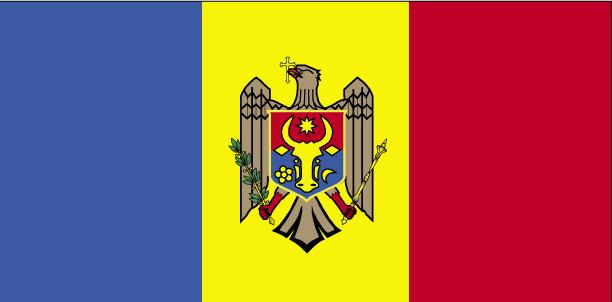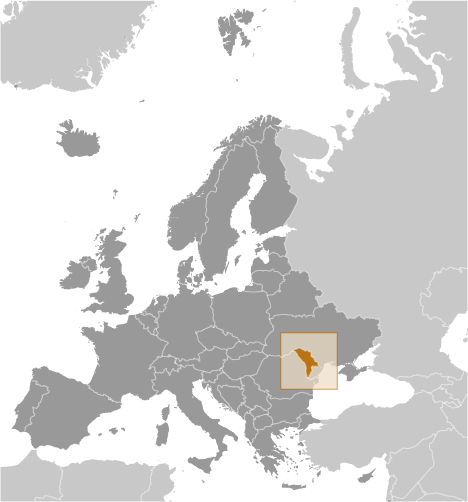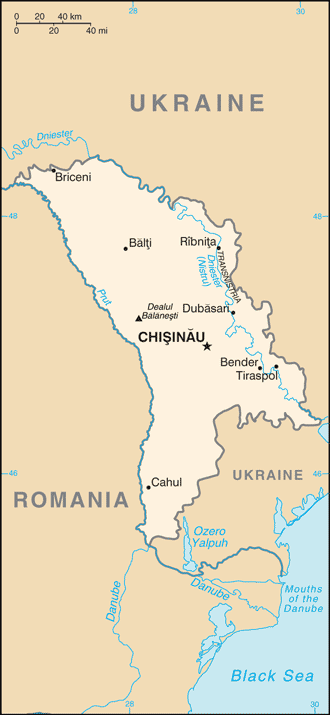Part of Romania during the interwar period, Moldova was incorporated into the Soviet Union at the close of World War II. Although the country has been independent from the USSR since 1991, Russian forces have remained on Moldovan territory east of the Dniester River supporting the Slavic majority population, mostly Ukrainians and Russians, who have proclaimed a "Transnistria" republic. One of the poorest nations in Europe, Moldova became the first former Soviet state to elect a Communist, Vladimir VORONIN, as its president in 2001. VORONIN served as Moldova's president until he resigned in September 2009, following the opposition's gain of a narrow majority in July parliamentary elections and the Communist Party's (PCRM) subsequent inability to attract the three-fifths of parliamentary votes required to elect a president. Moldova's four opposition parties formed a new coalition, the Alliance for European Integration (AEI), which will act as Moldova's governing coalition until new parliamentary elections can be held, possibly in summer 2010. Moldova experienced significant political uncertainty in 2009, holding two general elections (in April and July) and four presidential ballots in parliament, all of which failed to secure a president.
Country Name
Conventional long form:Republic of Moldova
Conventional short form:Moldova
Local long form:Republica Moldova
Local short form:Moldova
Former:Moldavian Soviet Socialist Republic, Moldovan Soviet Socialist Republic
Government Type
republic
Capital
Name:Chisinau (Kishinev)
note: pronounced KEE-shee-now
Geographic coordinates:47 00 N, 28 51 E
Time difference: UTC+2 (7 hours ahead of Washington, DC during Standard Time)
daylight saving time: +1hr, begins last Sunday in March; ends last Sunday in October
Administrative divisions
32 raions (raioane, singular - raion), 3 municipalities (municipii, singular - municipiu), 1 autonomous territorial unit (unitatea teritoriala autonoma), and 1 territorial unit (unitatea teritoriala)
raions: Anenii Noi, Basarabeasca, Briceni, Cahul, Cantemir, Calarasi, Causeni, Cimislia, Criuleni, Donduseni, Drochia, Dubasari, Edinet, Falesti, Floresti, Glodeni, Hincesti, Ialoveni, Leova, Nisporeni, Ocnita, Orhei, Rezina, Riscani, Singerei, Soldanesti, Soroca, Stefan-Voda, Straseni, Taraclia, Telenesti, Ungheni
municipalities: Balti, Bender, Chisinau
autonomous territorial unit: Gagauzia
territorial unit: Stinga Nistrului (Transnistria)
Independence
27 August 1991 (from the Soviet Union)
National Holiday
Independence Day, 27 August (1991)
Constitution
adopted 29 July 1994; effective 27 August 1994; note - replaced 1979 Soviet constitution
Legal system
based on civil law system; Constitutional Court reviews legality of legislative acts and governmental decisions of resolution; accepts many UN and Organization for Security and Cooperation in Europe (OSCE) documents; has not accepted compulsory ICJ jurisdiction
Suffrage
18 years of age; universal
Executive branch
Chief of state:Acting President Mihai GHIMPU (since 11 September 2009)
note: Vladimir VORONIN, president since 4 April 2001, resigned on 11 September 2009; Mihai GHIMPU, the Speaker of Parliament, is serving as acting president until new elections can be held, possibly in 2010; the parliament twice failed to elect a president in 2009 and must wait until at least late 2010 to dissolve itself and hold new presidential elections, given that the constitution forbids parliament from being dissolved more than twice in a 12-month period
Head of government:Prime Minister Vladimir FILAT (since 25 September 2009); Deputy Prime Minister and Minister of Foreign Affairs and European Integration Iurie LEANCA (since 25 September 2009), Deputy Prime Minister and Minister of Economy Valeriu LAZAR (since 25 September 2009), Deputy Prime Minister Ion NEGREI (since 25 September 2009) and Deputy Prime Minister Victor OSIPOV (since 25 September 2009)
Cabinet:Cabinet selected by president, subject to approval of Parliament
(For more information visit the World Leaders website)
Elections:president elected by Parliament for a four-year term (eligible for a second term); last successful election held on 4 April 2005, most recent (failed) election held on 10 December 2009); note - prime minister designated by the president upon consultation with Parliament; within 15 days from designation, the prime minister-designate must request a vote of confidence from the Parliament regarding his/her work program and entire cabinet; prime minister designated on 17 September 2009; cabinet received a vote of confidence on 25 September 2009
Election results: Vladimir VORONIN reelected president (2005); parliamentary votes - Vladimir VORONIN 75, Gheorghe DUCA 1; Vladimir FILAT designated prime minister; parliamentary votes of confidence - 53 of 101
Legislative branch
unicameral Parliament or Parlamentul (101 seats; members elected on an at-large basis by popular vote to serve four-year terms)
Elections: last held on 29 July 2009 (next to be held, possibly in 2010); note - this was the second parliamentary election in less than four months; the earlier parliament (elected 5 April 2009) could not agree on a presidential candidate; the current parliament also failed to elect a president, but because of a constitutional provision that says the parliament cannot be dissolved more than once in a 12-month period, new elections will not be held at least until summer 2010
Election results:percent of vote by party - PCRM 44.7%, PLDM 16.6%, PL 14.7%, PD 12.5%, AMN 7.4%; seats by party - PCRM 48, PLDM 18, PL 15, PD 13, AMN 7; note - counting defections that occurred in December 2009 and January 2010, the PCRM now holds 44 seats and the AMN holds 5; the 4 PCRM and 2 AMN defectors still sit in parliament, but are not allowed to establish factions; factions must be established during the first two weeks of Parliament's plenary sessions
Judicial branch
Supreme Court; Constitutional Court (the sole authority for constitutional judicature)
Political Parties and Leaders
represented in Parliament: Communist Party of the Republic of Moldova or PCRM [Vladimir VORONIN]; Democratic Party or PD [Mihai LUPU]; Liberal Democratic Party or PLDM [Vladmir FILAT]; Liberal Party or PL [Mihai GHIMPU]; Our Moldova Alliance or AMN [Serafim URECHEAN]
not represented in Parliament: Centrist Union or UCM [Vasile TARLEV]; Christian Democratic People's Party or PPCD [Iurie ROSCA]; National Liberal Party or PNL [Vitalia PAVLICENKO]; Party for Social Democracy or PDSM [Dumitru BRAGHIS]
Political pressure groups and leaders
NA
International organization participation
BSEC, CE, CEI, CIS, EAEC (observer), EAPC, EBRD, FAO, GCTU, GUAM, IAEA, IBRD, ICAO, ICCt (signatory), IDA, IFAD, IFC, IFRCS, ILO, IMF, IMO, Interpol, IOC, IOM, IPU, ISO (correspondent), ITU, MIGA, OIF, OPCW, OSCE, PFP, SECI, UN, UNCTAD, UNESCO, UNHCR, UNIDO, Union Latina, UNMIL, UNMIS, UNOCI, UNWTO, UPU, WCO, WFTU, WHO, WIPO, WMO, WTO
Diplomatic representation in the US
Chief of mission:Ambassador Andrei GALBUR
Chancery:2101 S Street NW, Washington, DC 20008
Telephone:[1] (202) 667-1130
FAX: [1] (202) 667-1204
Diplomatic representation from the US
Chief of mission:Ambassador Asif J. CHAUDHRY
Embassy:103 Mateevici Street, Chisinau MD-2009
Mailing address:use embassy street address
Telephone: [373] (22) 40-8300
FAX: [373] (22) 23-3044
Flag description
three equal vertical bands of blue (hoist side), yellow, and red; emblem in center of flag is of a Roman eagle of gold outlined in black with a red beak and talons carrying a yellow cross in its beak and a green olive branch in its right talons and a yellow scepter in its left talons; on its breast is a shield divided horizontally red over blue with a stylized ox head, star, rose, and crescent all in black-outlined yellow; similar color scheme to the flag of Romania - with whom Moldova shares a history and culture - but Moldova's blue band is lighter










